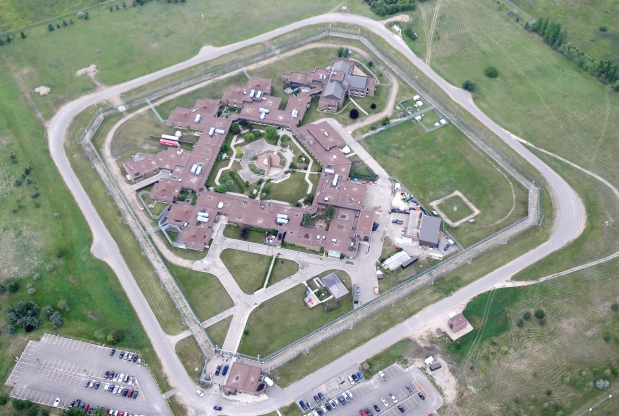43-year-old Shane Cantre died at the Regional Psychiatric Centre on July 16, 2021.
Cantre was found unresponsive in his cell and life-saving methods by RPC staff and EMS who arrived on scene were unsuccessful. He would be declared dead at the scene by EMS Personel.
An inquest into his death is taking place in Saskatoon this week.
On Monday morning, the inquest saw the selection of six jury members, three of whom are Indigenous. The jury will hear from ten witnesses and at the conclusion of the inquest will have an opportunity to make recommendations to prevent similar deaths in the future.
The first witness at the inquest was Staff Sergeant Andy Johnstone of the Saskatoon Police Service who was the lead investigator into Cantre’s death.
Johnstone confirmed to the inquest that Cantre died by suicide in his cell. The lead investigator testified Cantre was able to hang himself using a cloth and a ligature point he described as a “small knob on a shelf.”
There was some discussion about anti-ligature devices, which are devices that would break or fall away under the weight of a person. Other testimony at the inquest would confirm that the shelving units Cantre used have since been removed from the facility.
When Johnstone was asked about any recommendations he could provide to the jury he says any institution should do their best to remove these ligature points.
The inquest also heard from corrections officer Alan Wong who discovered Cantre in distress.
Wong testified to having what he described as a “good” relationship with Cantre, but says his mental health seemed to be deteriorating leading up to his death as he says Cantre was showing self harming behaviours.
“He definitely wasn’t happy… his mental health wasn’t the best,” Wong told the inquest.
Wong spoke on situations where Cantre attempted to jump from the upper level of the unit, which he says occurred three times. Wong questioned why Cantre wasn’t moved to a lower cell after these incidents. He also says he would like to see a fence installed to prevent these types of situations.
The corrections officer then spoke with Coroner’s Counsel Robyn Ritter about the hourly checks guards make on inmates. Wong says hourly checks are the bare minimum and can be increased to every 30 minutes, 15 minutes, or constant observation depending on the mental health of the inmate.
Wong says it is usual practice when inmates show self-harm behaviour they would be put in higher observation rather than general population, but he couldn’t say why this wasn’t the case with Cantre.
Ritter then informed Wong that Cantre had told his parole officer on April 2, 4 months prior to his death, that he planned on hanging himself, specifically using the knob on that shelf. The corrections officer couldn’t tell Ritter why this information wasn’t acted on.
Wong also spoke on possible communication issues between the guards and the medical staff at RPC when it comes to inmate safety and treatment. He did confirm that the shelf used as a ligature point has since been removed by the facility and cells are audited every 30 days for possible ligature points. He also says it is his opinion that officers should be allowed to carry a 911 tool on their person, however, he says the 911 tool was not needed to cut Cantre down. In addition, the corrections officer says an AED should be brought to any inmate in distress, which wasn’t brought when Cantre was found unresponsive.
Wong also spoke on Indigenous programming available to inmates, which would include visits from an elder, but he says it is up to each individual inmate to access these programs.
The inquest will continue on Tuesday with more testimony from EMS, RPC administrative staff, a parole officer, psychiatric nurses, a psychologist, and a forensic pathologist.
The inquest is expected to wrap-up on Wednesday, with a possibility it may run into Thursday.
